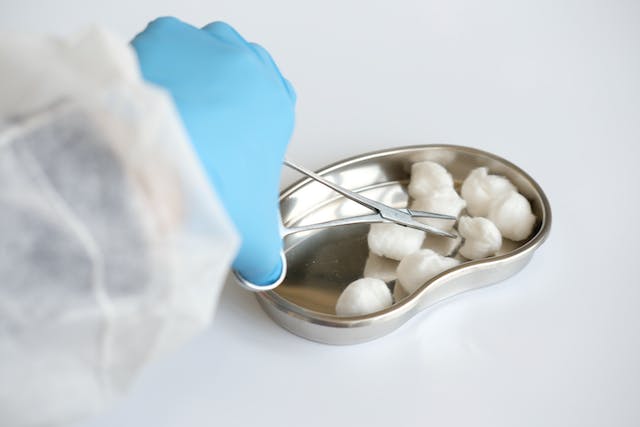
What is acute kidney failure (AKF)?
Acute kidney failure (AKF) happens when the kidneys suddenly stop working. It can range from a mild loss of kidney function to kidney failure.
The main job of your kidneys is to filter waste from your blood. They also remove excess fluid from the blood (which turns into urine) and regulate blood pressure. The kidneys help make red blood cells. They regulate electrolytes (a type of nutrient) and also activate vitamin D.
When the kidneys are damaged, they don’t work well. This can happen due to another health condition, such as diabetes. Long-term kidney failure is called chronic kidney failure.
Alternate name
- Acute renal failure
Who gets acute kidney failure?
Anyone can get AKI. For the most part, AKI occurs in people who are already sick and in the hospital. Those in the Intensive Care Unit (ICU) have more AKI than those in other units of the hospital. People who should be in the ICU are already very sick. Other factors that can increase your risk of AKI are:
- 65 years or older
- Kidney disease or problem
- Have high blood pressure.
- Having a chronic disease such as heart disease, liver disease, or diabetes.
- Having peripheral artery disease (a condition that makes it hard for blood to get to the arms and legs)
Causes of acute kidney failure
The causes of AKF are mainly obstruction of blood flow to the kidneys, kidney damage, and urinary incontinence. Health conditions leading to AKF:
- Heart disease
- Antihypertensive drugs, chemotherapy drugs, antibiotics, aspirin, ibuprofen, naproxen, dyes used for imaging tests, and zoledronic acid (a drug used to treat osteoporosis)
- Hypercalcemia (high levels of calcium in the blood)
- An acute form of an allergic reaction (anaphylaxis)
- For liver failure
- Severe burns and blood loss.
- Infections such as glomerulonephritis and vasculitis
- Lupus (an immune system disorder that causes glomerulonephritis)
- Scleroderma (a group of rare diseases that affect connective tissue and skin)
- Hemolytic uremic syndrome (premature erythema)
- Cholesterol deposits in the blood vessels.
- Toxins like heavy metals, cocaine, and alcohol
- Cancer of the colon, bladder, prostate, cervix, and multiple myelomas (cancer of plasma cells)
- Conditions such as kidney stones, an enlarged prostate, and blood clots in the vessels around the kidneys
Risk factors for acute kidney failure
Acute kidney failure always occurs with another medical condition or event. Some conditions that can increase your risk of severe kidney failure are:
- Being hospitalized, particularly for a serious situation that requires intensive care
- Advanced age
- Blockages in the blood vessels in your arms or legs
- Diabetes
- High blood pressure
- Heart failure
- Kidney diseases
- Liver diseases
- Certain cancers and their treatments
Symptoms of acute kidney failure
The symptoms of acute kidney failure depend mainly on the underlying cause.
- Hemorrhage
- Fever
- Weakness
- Fatigue
- Rash
- Diarrhea or bloody diarrhea
- Poor appetite
- Severe vomiting
- Abdominal pain
- Back pain
- Muscle cramps
- No urine output or high urine output
- Story of recent disease (a risk factor for acute kidney failure)
- Pale skin
- Nosebleeds
- History of taking certain medicines (a risk factor for acute kidney failure)
- Story of trauma (a risk factor for acute kidney failure)
- Swelling of the tissues
- Inflammation of the eye
- Detectable abdominal mass
- Danger of heavy metals or toxic solvents (a risk factor for acute kidney failure)
Diagnosis of acute kidney failure
Depending on the cause of your severe kidney injury, nephrologists may perform different tests if he or she is suspected of having AKI. It is important to detect AKI as early as possible, as it can lead to chronic kidney disease or kidney failure. It can also lead to heart disease or death.
The following tests can be performed:
- Measurement of urination: Your healthcare provider will track the amount of urine you urinate each day to help find the cause of your AKI.
- Urinalysis: Your healthcare provider will look at your urine (urinalysis) for signs of kidney failure.
- Blood tests: In addition to blood tests for protein, blood tests can help detect levels of creatinine, urea, nitrogen, phosphorus, and potassium.
- GFR: Your blood test can help detect your GFR (glomerular filtration rate) to assess decreased kidney function.
- Imaging tests: Imaging tests, such as ultrasound, can help your doctor see your kidneys and detect anything unusual.
- Kidney biopsy: In some cases, your healthcare provider will perform a procedure in which a small part of your kidney is removed with a special needle and viewed under a microscope.
Treatment for acute kidney failure
Once the cause is found, the goal of acute kidney failure treatment is to help the kidneys work again and prevent fluids and waste from building up in your body as they heal. Generally, you will need to spend the night in the hospital for treatment.
The amount of fluid you drink is limited by the amount of urine you can produce. You will be told what you can and should not eat to reduce the formation of toxins that the kidneys normally remove. Your diet should be high in carbohydrates and low in protein, salt, and potassium.
You may need antibiotics to treat or stop the disease. Diuretics may be used to help exclude fluid from your body.
Medicines Your doctor may prescribe medicines that control the amount of phosphorus and potassium in your blood. When your kidneys fail, they cannot remove these substances from your body. Medications do not help the kidneys, but they do reduce some of the problems that can lead to kidney failure.
You may need dialysis. This is the treatment that healthy kidneys usually do: get rid of waste products, excess salt, and water that are harmful to the body. Dialysis can save your life if your potassium levels are dangerous. Dialysis is also used if:
- Your mood will change.
- You develop pericarditis.
- You retain a lot of fluid.
- You are unable to remove nitrogen waste products from your body.
Dialysis is usually short-lived. In some cases, kidney damage is so great that permanent dialysis is needed.
Prevention
The best way to prevent severe kidney failure is to take steps to stay healthy. If you are going to be hospitalized for surgery or illness, be aware of the risks and complications of any procedures that you may perform. Report any change in urination immediately. And, as always, follow the instructions your doctors and nurses give you.
Having an open discussion with your healthcare team can help you get the treatment you need for severe kidney failure.
Complications
There are some complications of acute kidney failure:
- Chronic kidney failure
- Heart damage
- Nervous system damage
- End-stage renal failure
- High blood pressure
Prognosis
Recovery from severe kidney failure depends on the cause of the disease. If there is no cause of kidney tissue damage, the prognosis is good, and the patient will probably make a full recovery. Partial restoration of kidney function can occur in conditions in which the injury does not fully resolve. In general, the sicker a patient is at the onset of kidney failure, the worse the outcome. Severe cases of acute kidney failure can lead to death.






